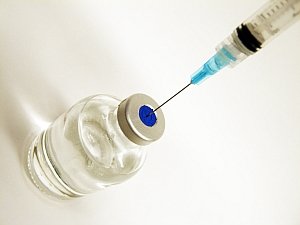
According to data compiled by the Indian government, in the eight years since 2005, more than 2,800 deaths of patients have occurred during clinical trials.
What are the major issues confronting India's bioscience sector now? On top of every one's mind is the uncertainty over parliamentary approval to the new biotech regulatory legislation and the scrappy work done by the current regulator, the Genetic Engineering Appraisal Committee (GEAC).
There is also a third issue that generates a lot of heat in industry meetings related to India, both within the country and abroad. Strong views are expressed on the long delays in getting approvals for clinical trials of new drugs in the last 18-24 months. The government has cleared in the last week of June more than 50 new clinical trials, but the issue is something that is debated hotly, whenever, industry leaders meet these days.
Let me place some facts on clinical trials before you. Like the genetically modified (GM) crops, clinical trials too are facing intense scrutiny from all the four pillars of Indian democracy- courts, parliament, executive and media. Rarely any subject garners so much attention from all these four pillars at the same time. Why is this happening? It is the public attention on dozens of deaths reported during clinical trials in the country that is making every one turn to this sector.
According to data compiled by the government, in the eight years since 2005, more than 2,800 deaths of patients have occurred during clinical trials. Of these, only 89 or about three percent are attributable mainly due to the effects of the medical products under trial. Rest of the cases are due to terminal illnesses, advancing age, etc. Companies that conduct clinical trials are required to provide compensation to the families of the victims. So far compensation, ranging from $3000 (Rs 180,000) to $7,000 (Rs 420,000) have been paid to 70 of the 89 victims of clinical trials. Clinical trial companies have not managed to either locate the next of kin of 19 victims. These deaths occurred between 2003 and 2006. The total outstanding amount is in the range of Rs50-60 lakh.
Clinical-trials industry's inability or even indifference to pay compensation to these 19 victims is one of the primary reason which is stalling the progress of the clinical trials industry. The Rs 1,500 crore industry is viewed with suspicion within the government. Our entire government system is based on the principle of mistrust of its citizens and every one else in the country except the establishment. Such inaction by the clinical-trials industry only adds to the suspicion of policy makers.
Of course, things have changed since 2009 when it has been made mandatory to register all clinical trials with the government. Further changes were introduced in February 2013, which makes it compulsory for clinical investigators to have full details of all participants and their families so that compensation could reach them if something goes wrong. At a meeting organized by the USA India Chamber of Commerce (USAIC) in Cambridge, Massachusetts, in mid-June, government unveiled the new guidelines on clinical trials. The galaxy of pharma industry leaders from the US and India present there nod in agreement with the new guidelines.
It is high time the clinical-trials industry, having more than 100 member companies, looks itself in the mirror, makes available the Rs 50-60 lakh compensation amount, identify the families of the 19 victims and remove the Damocle's Sword hanging over it for such a small issue. It can get on with the job of testing tomorrow's blockbuster and life saving drugs without any fear then.




